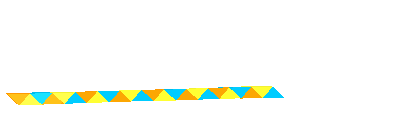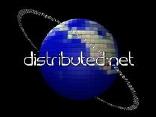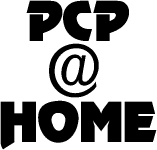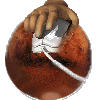| Project Logo | Project Information | Project % Complete | Major Supported Platforms |
|---|---|---|---|
| Science | |||
|
|
Search for extra-terrestrial radio signals at
SETI@home. Version 3.03 of
the client is available as of December 13, 2000. The latest
newsletter, #10, was published November 6, 2001. A
Glossary of
Concepts is available to explain the project's unique terminology. SETI@Home is the largest public distributed computing project in terms of computing power: on September 26, 2001 it reached the ZettaFLOP (1021 floating point operations) mark--a new world record--performing calculations at an average of 71 TeraFLOPs/second. For comparison, the fastest individual computer in the world is IBM's ASCI White, which runs at 12.3 TeraFLOPs/second. Check the status of the SETI@home data server and tapes. View derived statistics for SETI@home. Get answers to all of your SETI@home questions in the SETI@home FAQ. Read a short research paper, written in 1998, about the origins of SETI and SETI@home.
See my SETI@home stats. |
ongoing (420,319,987 total work units processed) |

|
| Help the Analytical Spectroscopy Research Group (ASRG) in their SETI project. Their system has the same basic goal as SETI@Home, but it uses a more manual process: you download work units from a web page, process them with one of three tools, and email results back to the project coordinator. More information can be found on the volunteer page. | ongoing |
|
|
|
|
Participate in various volunteer science- and
medical-oriented research projects at
Entropia. Sign
up to receive information about how to download the client.
Entropia 3000, the new version of the client, is available as of April 30, 2001. If you already have the Entropia 2000 client installed, exit it and restart it to automatically download the new client (the upgrade file for the new client is 5.1 MB). The member site contains stats about all of the current projects, and other information. |
multiple projects ongoing |
|
 |
evolutionary-research
has created a grand-challenge computation
research program called Evolution@home to study evolution. The first
simulator for the project "helps uncover potential genetic causes of extinction
for endangered and not-yet-endangered species by investigating Mullers
Ratchet. Your help to improve understanding of such genomic decay might one
day be used to fight it."
See more information about the client in an overview. A Macintosh client (for classic MacOS on PowerPC) is available from the download page as of April 3, 2001. A Windows client is available as of April 27, 2001. See the progress of code development for the project. The site is also available in German. |
ongoing |
|
 |
Participate in health, science, and Internet-related research projects at
United Devices.
United Devices' first project is a bioinformatics research project for the University of Washington in St. Louis, Missouri. The project, called HMMER, uses the Hidden Markov Modeling technique to compare known DNA sequences (amino acids) against the data from the Human Genome Project to find similar sequences. United Devices' second project is searching for cancer-fighting drugs in partnership with the National Foundation for Cancer Research (NFCR) Centre for Drug Discovery in the Department of Chemistry at the University of Oxford, England. This project began in March, 2001. Oxford has a detailed website about the science behind the project. United Devices also has the latest news about the project and its results. A third project will be done in cooperation with iArchives. It will "scan, store, and index images of original documents," like newspaper articles, microfilm, or geneological annals, "allowing these documents to be searched and retrieved through the Internet and/or intranets." This project will begin in the third quarter of this year. Starting some time soon, United Devices will also begin its first commercial project, web performance testing, in partnership with Exodus Communications. User participation in this project is optional, but your work will help United Devices stay in business and run more voluntary projects. |
ongoing: 92,961,369 results |
|
| Life Sciences | |||
 |
Parabon Computation has research projects
(and will have commercial projects) and has a secure Java client like Popular
Power's. Version 1.3.8 is available for Windows 9X/2K/NT as of December 20,
2000. Version 1.3 for Linux is available as of April 24, 2001. You can
download the full client
here. The
client automatically upgrades itself, so you don't need to download updates.
You can
sign up to receive email notification when the Mac and Unix clients are
available.
The client currently participates in one or more of the following projects: an exhaustive regression analysis to identify the specific factors that ease the suffering of chemotherapy recipients, a gene expression analysis and a study of the molecular dynamics of protein folding to create greater understanding of the behavior of cancer cells and how they interact with potential new treatments, and an exhaustive regression analysis of clinical trial data for Amarillo Biosciences, Inc. for a treatment of fibromyalgia syndrome. Parabon has a sweepstakes for active participants. You can qualify to win $100 every day your Pioneer client connects to the Parabon servers, and one participant a month wins $1000. Parabon has awarded $34,700 (US) in prizes to date. |
ongoing |
|

|
Folderol is a volunteer project that
uses a screensaver, command-line client or system client application to
simulate protein
folding of the data from the Human
Genome Project.
Version 0.60 is available as of February 26, 2001. September 27, 2001 Note: The project coordinators have stated that this project is on hold indefinitely, until they have time to support it again. They will let us know when it resumes. For now, please try a different project. |
on hold; 36 years of simulations completed. |
|
|
|
Folding@home
is another volunteer project that uses a screensaver or client application
based on the Mithral
CS-SDK
to simulate protein folding in an effort to better understand how proteins
self-assemble or fold. Intel supports
this project through its Philanthropic
Peer-to-Peer Program.
Version 2.15 of the Windows graphical screensaver and the text-only client application are available as of November 20, 2001. Version 2.10 of the client is available for Linux (on Intel). Version 1.34 is available for Solaris (2.7 or higher) at the old project site as of February 25, 2001, and for Mac OS X at the old project site as of June 1, 2001. MacOS9 and other Unix flavors of the client are in development. See independently-maintained hourly team and user stats for this project at statsman.org. See the original Folding@Home project. Join one of the discussion groups about this project:
Or join a discussion group about the original project. |
ongoing |

|

|
Help design new proteins and genes for
Genome@home, a sister project
to Folding@home, to learn better how natural genomes have evolved and how
natural genes and proteins work. See the project's
latest news (last updated
December 21, 2001).
Version 0.99 of the client is available as of August 2, 2001. Note: the software is still undergoing development, so new features are added fairly often. The first release client, version 2.0, should be available in early 2002. A work unit takes 24-48 hours to complete, but the software now has checkpointing so that you can restart work unit if you have to stop it before it finishes. For modem users, the client will continue designing new genes for the last work unit you downloaded until you reconnect to the server, and then it will upload your results and download a new work unit to work on. Genome@home's first experiment concluded successfully in early March, 2001, with more than 1000 users creating more than 15,000 new genes for 217 proteins. As of November 12, 2001, Genome@home has begun Phase 2 of its protein design experiments. This phase will study "all single-chain proteins in the RCSB Protein Data Bank" with a length up to 150 amino acids--over 3,015 different proteins. See independently-maintained hourly team and user stats for this project at statsman.org. Join a discussion group about this project. |
ongoing |
|

|
Help design new drugs to fight AIDS at fightAIDS@home using the entropia client. | ongoing: 3,176,762 tasks done |
|

|
Übero's Java-based
client allows you to participate in for-pay projects
similar to other current and upcoming for-pay projects. The current Beta
version of the client runs "genetic alignment algorithms" which "look for
similar amino acid strings in various organisms." This volunteer project
is being done for the Institute of Genomics
and Bioinformatics at the University of
California, Irvine. Future volunteer projects may include protein
folding and radiation research.
The Beta version 0.7 of the client is available as of December 15, 2001. This version of the client has support for users behind proxy-based firewalls, uses your CPU and network bandwidth more efficiently, and has many other new features. This project is better suited for users with full-time Internet connections because a work unit completes in only a few minutes on my Pentium II 350 and the client doesn't buffer work units. Join a discussion group about Übero. |
ongoing |
|

|
Help find an oral drug which can fight Anthrax and
Smallpox, two deadly diseases for which there is currently no cure, in
Sengent's
Drug Design Optimization
Lab (D2OL)TM. This commercial
project uses volunteer resources to screen the Anthrax and Smallpox proteins
against a database of 2 million potential drugs. The volunteer who finds the
best potential drug will be paid $25,000 (US).
The client is currently only available for the Windows platform. It runs in the system tray, but it also has a graphical interface if you want to watch what it's doing. It does not require a continuous Internet connection. Version 0.77b of the client is available as of December 20, 2001. Note that with this version, if you pause or restart the client, you will lose all of the conformers you've generated for the current work unit. With version 0.75b you only lost the current conformer. Join the D2OL Forum. |
ongoing: 1,388,417 conformers tested; 67,948 candidates generated |
|

|
Help screen molecules to design drugs to fight diseases
in The Virtual
Laboratory Project. This project does not work in the way that traditional
projects do. Instead of downloading a software client and
having it get work assignments, you set up Globus
grid computing software on your system and then
make your
system available to the World Wide Grid (WWG), a global computing grid.
Then the Virtual
Lab project coordinators can schedule computations on your system at their
convenience. Because of this setup, this project is best for users with
permanent Internet connections. For this project, the coordinators use their
grid scheduler, called Nimrod-G, to deploy their Nimrod-G agents on your
machine to do the molecule screening. Their view of the project looks like
this.
See a white paper about this process: The Virtual Laboratory: Enabling Molecular Modeling. The biology collaborator working on this project has already designed a drug to counteract an ECE enzyme involved in heart stroke, and is currently using the Virtual Laboratory to study liver cancer. |
ongoing |
|
| Cryptography | |||
 |
distributed.net organizes projects
like cracking data encryption
schemes (legally) and searching
for Optimal Golomb Rulers (measuring systems used in radio astronomy and
X-ray crystallography). 2.8015.469 of the client is available for most major platforms as of June 5, 2001.
See my RC5-64 stats, my OGR-24 stats, and my OGR-25 stats. |
RC5-64: 64.6% in 1,522 days OGR-24: unknown (135,477,752 Gnodes checked in 519 days) OGR-25: unknown (12,188,796,191 Gnodes checked in 499 days) 1 Gnode = 1 billion nodes |
|
|
|
The ECCp-109 Challenge is a distributed effort to solve Certicom's
ECCp-109 challenge
and set "a new world record in characteristic p elliptic curve discrete log
computation." If this project wins Certicom's $10,000 (US) prize, each of
the two people who find the winning curve will get $1,000 (US) and the
remaining $8,000 (US) will go to the Free Software Foundation.
Version 1.30 is available as of November 25, 2001. If you have an older version, please upgrade to this new version as soon as you can. The older versions can't connect to the new project server. 1.30 and later will be able to detect and switch to new project servers automatically. For Solaris users: you can easily build an executable for this project. Download the source code, remove the hard returns (^Ms) from Makefile and asm/sparc/*.s, then run make spCL to build the executable. For all users, if you connect to the Internet through a proxy server, you can create a file called proxy.txt and add to it your proxy server name and port (ex: my.proxy.server.com 80) and the client should be able to connect to the project server through your proxy. If that doesn't work, you can submit points manually. Join a discussion group about this project. |
16.0%: 9,118,139 total distinguished points |
|
| Internet | |||
 |
Evaluate the performance of large websites to find bottlenecks with
Porivo Technologies' distributed client,
Porivo PEER and its first
project, peerReview.
Some users will be paid up to $45(US) per month for their contributions.
Note: peerReview does its work when a network connection is present. Modem users will notice that the client is not active while they are offline. A work unit is completed in 15 minutes, so it is possible for modem users to contribute useful work. The client supports some firewalls. Porivo is developing future projects to research science, engineering, and Internet research-related problems. Some future projects will be more CPU-intensive, allowing modem users to work offline. Version 3.0 of the PEER client is available as of June 18, 2001 for Windows, Solaris and Linux. The client allows you to configure how much work your system contributes. Windows PEER users' clients will update automatically. Solaris and Linux users can download the software by going to the user login page and selecting "Download the Porivo PEER." |
ongoing |
|
|
|
CycleTraders combines
distributed computing with Peer-to-Peer computing concepts. Using the free
CycleTraders client you can measure the response time of other users' websites
while they measure the response time of yours.
The client is in alpha testing currently. Version 0.8.1a for Windows and Linux is available as of August 21, 2000. |
|
|
|
|
Dashbit TRACELOOP
"is a distributed traceroute community. Individuals
and organizations throughout the Internet host the traceloop client software
on their own machines. In return, they become members of the traceloop
community and are permitted to request traceroutes from the network." The
project is currently in alpha testing, focusing on testing of "installation,
operation and use of test points." (Test points are individuals' systems.)
This project requires a continuous network connection rather than CPU power. |
|
|

|
grub.org is "an open-source distributed Internet crawler." The client "crawls" websites to see which sites have changed their content, and updates a master search index in real-time. grub.org will create and maintain the most comprehensive and up-to-date search index of the Internet ever, and will provide update feeds of crawled sites to the public for free and to commercial search engines. |
|
|

|
Capacity Calibration tests and monitors website performance in real-time with controlled
capacity loads. Participants are paid cash (via
PayPal) for participating: you will
receive a $10(US) activation fee plus $10(US) a month or $0.30(US) per hour,
whichever is greater.
Participants must have a full-time, high-speed Internet connection and must run the CapCal Java client application at least 10 hours per day or 70 hours per week. Under Windows 98 and Windows ME, the client only runs when the screen-saver is active. Under Windows 2000 you can configure it to run any time or only during specific times. You can register to be a participant here. |
|
|
| Financial | |||

|
MoneyBee is
a screen saver that uses neural networks to analyze stock market charts and
indices to predict future trends of the indices. The client will train its
neural network with old data but the goal of the project is to make good
predictions from actual charts. Participation in the project is free, and
all users who participate get access to the predictions.
The client is currently available for Windows, but Linux and Macintosh versions are in development. The client only needs to transfer data for a few minutes every few days, so it supports modem-users well. The site is also available in German. |
|
|
|
|
The SaferMarkets
project, running on the
entropia platform, studies the causes of stock market volatility. The
project began on April 2, 2001.
According to a Business Week
article, the goal of the project is to find a formula that can "predict
the likelihood, degree, and duration of volatility in the Nasdaq and S&P
indexes and in five currency exchanges where the U.S. dollar is half the
equation," first using Bayesian statistics regarding human behavior to create
a random fictional history of volatility, then fine tuning the formula against
real, historical data. Eventually the project will use the formula to
predict the volatility of individual equities. The project will publish
its final results in economical journals and make the results available to the
public for free "to help people improve their finances through better planning
tools."
A work unit completes in about 20 minutes on my Pentium II 350, so this project is more suitable for people with full-time Internet connections. Note: when you view the introduction page of the website, your browser window may shake and move around on your screen for a few seconds. This is caused by a JavaScript that is used to demonstrate "shaky" markets :-) It won't hurt your browser or your system. You can skip the intro and the shaking window and go straight to the home page. |
ongoing: 922,508 tasks done |
|
| Mathematics | |||

|
The current largest known Mersenne prime number is 26972593 - 1 (found on June 1, 1999, and containing 2,098,960 digits). Help find the next one at the PrimeNet server. Unix users can participate in GIMPS using precompiled clients or source code at Ernst Mayer's site and the manual testing forms at the PrimeNet server. |
ongoing |
|
|
Search for different kinds of prime numbers at Yves Gallot's Proth Search Page. Submit new primes to the Top 5000 Primes list. Version 6.7 of Proth is available as of July 16, 2001. See the list of prime numbers that I've found. |
ongoing |
|
|
| Help find new factors of Cunningham numbers at ECMNET. | ongoing |
|
|
| Search for the next prime of the form n!+1 using primeform. | ongoing |
|
|
| Find minimal equal sums of like powers using Euler2000, available on the download page. The client automatically downloads ranges of numbers to work on. | ongoing: 94.0% |
|
|
|
|
Search for K-optimal lattice rules in GRISK.
The client will work behind a firewall if your firewall lets through traffic on port 5060/tcp, or if you have a SOCKS firewall. To run it behind a SOCKS firewall, run it with options like the following: java -DsocksProxyHost=<host> -DsocksProxyPort=<port:default=1080> jistributed.JistributedClient krypvier.ii.uib.no A Windows client is available as of November 6, 2000. A Macintosh OS X client is also available. The client is available for many other Unix platforms. The Delta=7 project was completed on November 15, 2000. The Delta=8 project was completed on December 21, 2001. The Delta=9 project began on December 21, 2001. project has now begun. variants, too. |
d=9: 0.7% |
|
| Search for factors of 2^(2^61-1)-1, a double Mersenne number, in the MM61 project. Download and test the client, then email the project coordinator to reserve a range of numbers to test. | ongoing: 3,749 ranges done, 751 to do |
|
|
 |
Find 3x+1 class records in the
3x+1 Problem
project. This project attempts to find ever higher 3x+1 class records.
The client, which will work on any PC/Windows platform, and the instructions
for joining the project, are
here.
Note: the client takes about 6 weeks to finish one block on a 400-MHz
CPU.
See the project's progress. |
ongoing |
|
| The
pi(x) project calculates pi(x), for very large values of x. It most
recently calculated pi(x) for x=4*1022. You can
contribute to the calculations for pi(x) for x=1023.
Version 1.5 of the client is available as of February 17, 2001. |
ongoing: 100% |
|
|
|
|
Catalan's Conjecture states that "8 and 9 are the only two consecutive
powers of integers. In other words 32-23=1 is the only
solution to xu-yv=1 in terms of integers." In the
Catalan's Conjecture Research project
you can help find Double Wieferich prime numbers (pairs of prime numbers that
satisfy the following equations: p{q-1}=1(mod p2) and
q{p-1}=1(mod q2)), which are the only numbers that will
satisfy Catalan's equation.
There is a $500 (US) prize for the people who discover a new pair of Double Wieferich prime numbers. Users behind firewalls are supported. Linux and HP/UX users can download and compile source code to participate. I have hacked up the source code as follows to make a Solaris executable:
The executable runs, but I haven't run it long enough yet to see if it is doing useful work and returning results. |
ongoing |
|
| Help the Distributed Search for Fermat Number Divisors project find unique Fermat Number factors.
This site is also available in Italian and Russian. Version 3.7 of the client is available as of January 6, 2001. Join a discussion group about this project. |
ongoing |
|
|
 |
The
PCP@Home project looks for short cases of
Post's Correspondence
Problem with large
shortest solutions. This theoretical computer science problem has been in
existence since 1946. It demonstrates undecidability: "a problem that cannot
be solved for all cases by any algorithm whatsoever." Finding PCPs in this
project will help define "decidability criteria for bounded PCP classes."
To participate in the project, download a precompiled, statically linked executable for Linux ELF, FreeBSD ELF, or Solaris 5.6 (you can also download and compile the source code), and also download a perl script called PcpSieve.pl which runs the executable, scans the output for record solutions, and emails the solutions to the project coordinator (you can also run the executable manually, search the output manually and email any record solutions you find). This site is also available in German. |
ongoing |
|
|
|
Find generalized Woodall numbers in the Generalized Woodall Numbers project. This project uses the Proth program to find these numbers. | ongoing |
|
|
|
Find generalized Fermat prime numbers in the
Generalized Fermat Prime Search. This project uses the
Proth program or the
GFNSieve21 program to find these numbers. Join a discussion group about prime numbers. |
ongoing |
|
|
|
Help verify Riemann's hypothesis in the
ZetaGrid project. This
hypothesis was formulated in 1859 and states that "all non-trivial zeros of
the Riemann zeta function (see the website) are on the critical line
(1/2+it where t is a real number)."
The client runs as a Windows screensaver or as a command-line application. You must have Java Runtime Environment 1.2.2 or higher installed to use it. The client is not available for download on the Internet yet, but will be available soon. The client only needs to be connected to the Internet to receive work or send results. |
ongoing |
|
| Art | |||
 |
The electric sheep project uses
an xscreensaver module to
display an animated fractal flame while rendering frames for the next
animation. It is designed for users with with high-bandwidth, always-on
Internet connections. It doesn't seem to work through firewalls. Version
2.1 is available for Linux and MacOS X as of July, 2001.
See example images of fractal flames. |
ongoing |
|
| Puzzles/Games | |||
 |
qoopy uses a single
infrastructure to support many kinds of client applications (similar to the
Parabon Computation project. The
site is hosted by the University of
Dortmund in Germany and is written in German, but an
English version is also available. The qoopy client is available for
Win32 and Linux and Unix platforms that run Java 1.3. It doesn't appear to
support users behind firewalls.
Note: the university currently does not have a stable Internet connection. The project pages and project server may occasionally be unavailable. If you have already downloaded the client, it will continue to run while the project server is unavailable. If the qoopy symbol in the top right corner of the client window is black, click on it to try to connect to the server. qoopy's first project is EvoChess, which evolves chess-playing programs. Each user's client generates some programs. The more successful programs survive and combine with other users' chess programs to speed up the evolutionary process. Users can play against the evolved chess programs and see information about the best evolved programs in the stats pages. The latest version of the project client is available as of November 1, 2001. It only allows programs which look ahead 5-10 moves to survive. |
ongoing: 1,731,130 games played |
|
|
|
Genetic TSP
uses a Java application that runs through your web browser and uses genetic
algorithms to solve a Traveling Salesman Problem (in a TSP, a salesman must
find the shortest route in which he/she can visit each a set of cities once
and return to his/her starting city).
This project is attempting to solve a problem of 15,122 cities of Germany.
The current record-holders of this problem are
Princeton University and Rice
University.
The client is available for Win32 and Linux and Unix platforms that have the Java 1.3 plugin. It should support users behind firewalls since it uses HTTP for communications. |
unknown |
|
| Miscellaneous | |||
 |
DALiWorld
(DALi stands for Distributed Artificial Life) isn't
technically a distributed computing project since it isn't solving a problem.
It is just a fun toy: a distributed virtual aquarium.
Written in Java by DALi, Inc., it creates
a virtual saltwater aquarium in a desktop window or in your screensaver and
populates it with fish (which currently don't do much more than swim around).
When you are connected to the Internet, some of your fish will occasionally
migrate to other users' aquariums and some of their fish will migrate to yours
(you can turn this feature off if you want to). You can click your right
mouse button on each fish to see its passport, which shows who created it and
where it has been.
This project is still in development and requires you to install Java and Java3D libraries. The Windows software downloads everything you need, but for the Linux and Solaris users I recommend this project only for users experienced in downloading and installing Java packages. Version 0.5 is available as a July 30, 2001. |
ongoing |
|
| Distributed Human Projects | |||
|
|
Participate in Mindpixel, a project in which you can help teach an artificially intelligent computer program to think more like a human by asking it questions. | ongoing: 437,392 mindpixels | N/A |
 |
Help teach computers to understand human "common sense"
in the Open Mind Commonsense
project, a
project which will create a repository of basic human knowledge.
Users can participate in many activites from describing the things that someone should know to fully understand an event to explaining the relationship between a pair of words or to describing a picture. |
ongoing: 8,035 registered users have submitted 392,419 items. | N/A |
|
|
Help proofread electronic texts for Project
Gutenberg at Distributed
Proofreaders.
As of November 25, 2001, the project has personal stats pages and rankings for proofreaders. Eventually it may have leader boards so that each proofreader can see how he or she is doing compared to other proofreaders. The site now also has discussion forums. |
ongoing: 136 books completed | N/A |
 |
Help NASA
mark craters on images of Mars.
Note: this web-based project requires you to have Netscape 6, Mozilla, or
Internet Explorer version 5 or greater.
The pilot project concluded in June, 2001. You can see the results of the study. It isn't known when or whether a new project will begin, but you can still try the tasks that were done in the pilot study. |
waiting for next project to begin | N/A |
|
|
Help build "the largest, most comprehensive human-edited directory of the Web" in the dmoz Open Directory Project. |
ongoing: 3,058,492 sites; 43,165 editors; 442,213 categories |
N/A |
|
|
Zeal is a similar project to dmoz, and is hosted by looksmart. Zeal is a completely non-commercial directory built by a community of volunteer editors. | ongoing | N/A |
 |
Contribute knowledge to
oomind, the Open Education Community. oomind organizes information about
any subject into "Courselets," small articles which are submitted by
contributors and scored or graded by other contributors. You can submit
new Courselets, grade others' Courselets, or study Courselets and earn credit
for taking quizzes about them.
This project is built on three basic principles:
|
ongoing: 78 Courselets in 15 categories |
N/A |
|
|
Contribute to Nupedia, the open content encyclopedia, the world's largest international, peer-reviewed encyclopedia. The project needs writers, editors and peer reviewers, copy editors, programmers, translators, graphic and audio artists, and casual participants. | ongoing | N/A |
|
|
Contribute a verse to a song about the New Economy at Geektones - Gods of the New Economy distributed songwriting project. This isn't a serious project, but it's funny :-) | ongoing | N/A |